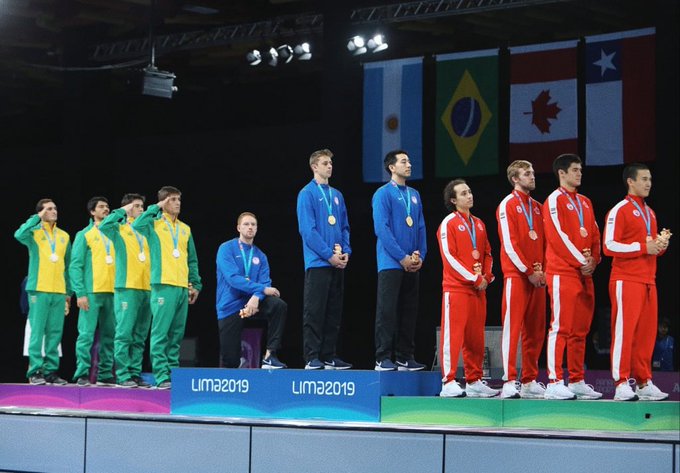Race Imboden, 26, an American fencer who won a bronze medal in the 2016 Rio Olympics, knelt during the national anthem at a Pan American Games award ceremony on Friday in Lima, Peru, to protest American racial and social injustice.
“This week I am honored to represent Team USA at the Pan Am Games, taking home Gold and Bronze,” wrote Imboden in a Friday tweet. “My pride however has been cut short by the multiple shortcomings of the country I hold so dear to my heart. Racism, Gun Control, mistreatment of immigrants,… and a President who spreads hate are at the top of a long list.”
The United States Olympic and Paralympic Committee (USOPC) has said that Imboden may face possible disciplinary action for his protest.
“Every athlete competing at the 2019 Pan American Games commits to terms of eligibility, including to refrain from demonstrations that are political in nature. In this case, Race didn’t adhere to the commitment he made to the organizing committee and the USOPC,” said Mark Jones, Vice President of Communications at USOPC, in a statement on Saturday, according to the Associated Press. “We respect his rights to express his viewpoints, but we are disappointed that he chose not to honor his commitment. Our leadership are reviewing what consequences may result.”
Imboden has previously competed in other high profile sporting events, fencing at the 2012 London Olympics and winning the team bronze medal in 2016 in Rio de Janeiro. Last week, Imboden won a gold medal in the team foil event with American teammates Gerek Meinhardt and Nick Itkin, and claimed a bronze medal in the individual men’s foil competition, according to the AP.
The Pan American Games are organized by PanamSports, an affiliate of the International Olympic Committee. The sporting competition operates in accordance with the Olympic Charter.
In the United States, kneeling during the national anthem has become associated with progressive political causes, especially issues of racial justice. The demonstrations, which began in 2016 with former San Francisco 49ers quarterback Colin Kaepernick in order to protest killings of unarmed black people by police, have since become a political and social flashpoint.
Last year, President Donald Trump claimed in a tweet that kneeling football players were protesting “something that most of them are unable to define.”


